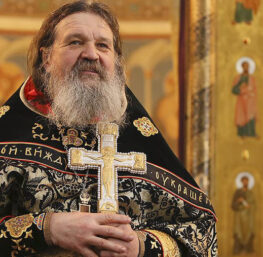TownHall.com Dennis Prager May 24, 2005
As I have noted on occasion, there are three values systems competing for world dominance: Islam, European style secularism/socialism and Judeo-Christian values. As the competition in America is between the second two (in Europe, Judeo-Christian values are dying while Islam is increasing its influence), my columns on Judeo-Christian values have concentrated on differences between Judeo-Christian and secular values.
Perhaps the most significant difference between them, though one rarely acknowledged by secularists, is the presence or absence of ultimate meaning in life. Most irreligious individuals, quite understandably, do not like to acknowledge the inevitable and logical consequence of their irreligiosity — that life is ultimately purposeless.




The disease is real, but what is the cure? Sad to say, but we don’t have to look back very far in history of the human race to find examples of shockingly evil behavior by human beings: Beheadings in Iraq, rape and ethnic cleansing in Bosnia and Kosovo, neighbors killing neighbors with machetes in Rwanda, terrorists killing children in Beslan Russia, to name but a few.
How could people possibly behave in this manner? The answer is that God’s love is absent in their hearts and they lack the ethical constraints and imperatives provided by the teachings of their faith. Europeans make themselves vulnerable once again to the horrors they endured under Hitler and Stalin by minimizing the importance of their Christian heritage and faith in their lives.
What is Christianity to do? It needs to remember what originally attracted people to Christianity two thousand years ago. Pagans suffering under the many cruelties, corruptions and debaucheries of the Roman Empire looked at their Christian neighbors and could not help but be startled and genuinely impressed by the contrast. Here were people who cheerfully performed acts of kindness and charity, who sincerely loved and cared for one another, who lived clean, honest, peaceful lives and had strong happy families. Moved by the Christian example, the curious pagans approached the happy people of Jesus Christ and learned the good news of the Gospels.
Christianity in Europe needs to boldly witness for Christ like that. Timidity and hesitation along with moral finger-waving and tsk-tsking, have to be replaced by real efforts to be more caring and compassionate and commitment to help the least fortunate of our neighbors as Christ taught, setting an example that cannot help but impress and move others.
Archbishop Anastasios (Yannoulatos) of Tirana and Albania is providing such an example for European Christians. Assigned by his Patriarch to the poorest and most inhospitable country in Europe he is succeeeding by returning to the basics.
“The Church under Archbishop Anastasios? leadership has also worked to heal the wounds caused by poverty in Albania, the poorest nation in Europe. During the crisis resulting from the collapse of the pyramid schemes in 1997, which wiped out the savings of many families, the Church stepped in and offered aid to 25,000 people. In 1999, during the bombing of Yugoslavia, the Church worked to assist as many as 32,000 refugees who entered Albania, regardless of their religious background. In fact, the seminary in Albania temporarily stopped classes so that all the students could assist with offering aid.”
http://www.christianity.com/partner/Article_Display_Page/0,,PTID26978%7CCHID130863%7CCIID1500310,00.html
“Anastasios took responsibility for rebuilding Albaniaâ??s Orthodox Church at a time when the nation, which is the poorest in Europe, was just emerging from four and a half decades of international isolation imposed by a xenophobic communist dictatorship. Albaniaâ??s economy was backward by European standards, its infrastructure was dilapidated, and organized religion was almost nonexistent, as all religious practice had been outlawed in 1967.
Under Anastasiosâ?? leadership, churches have been restored or rebuilt, a new generation of clergy is being educated, and religious schools have been opened. The newly reinvigorated Orthodox Church, meanwhile, continues to work aggressively to address poverty across the country.”
http://www.orthodoxnews.netfirms.com/120/Archbishop%20Anastasios%20of%20Albania.htm
If Bishop Anastasios can succeed in Albania, witnessing for Christ in the more prosperous parts of Europe shouldn’t be half as difficult.